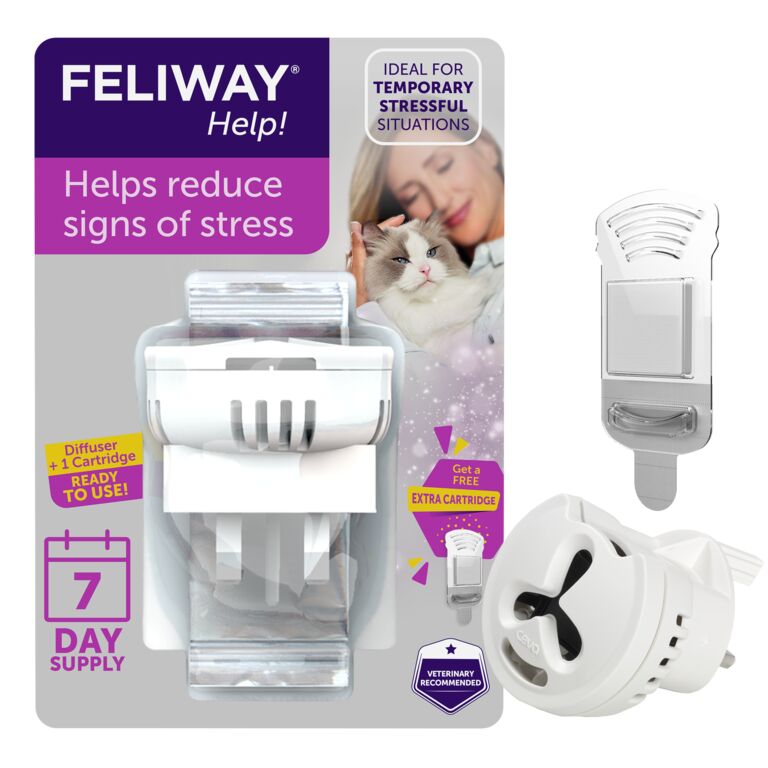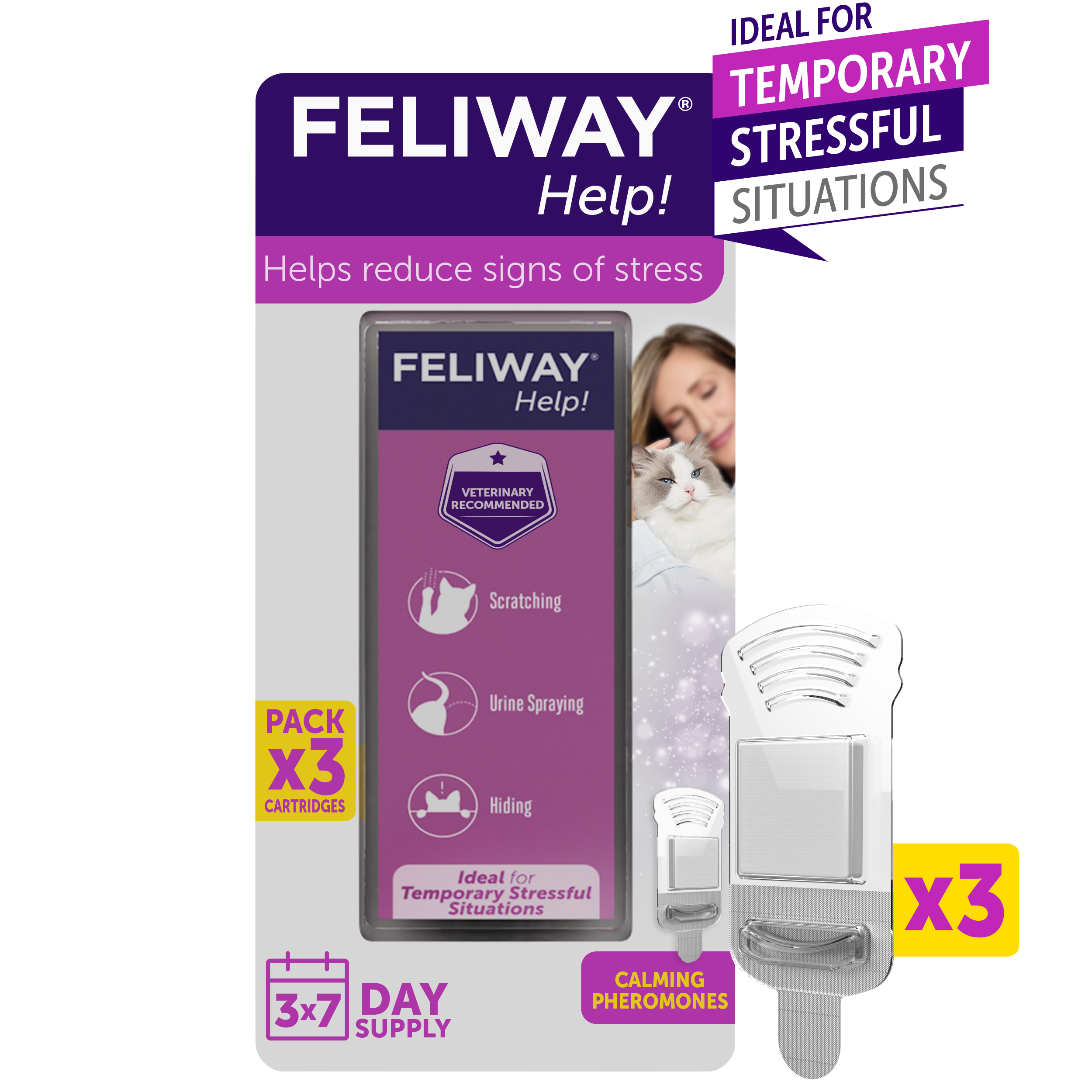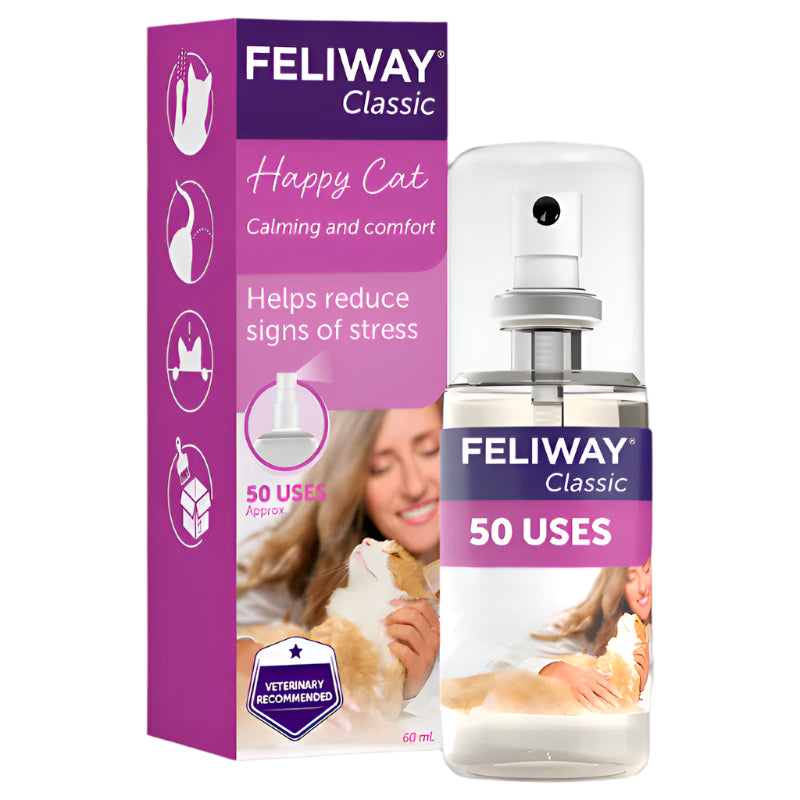Why Is My Cat Spraying or Urinating in the House?
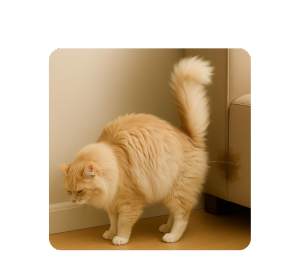
If your cat is suddenly spraying or peeing indoors, they're not just being difficult — they’re trying to communicate. Spraying in cats is often a sign of stress, territory marking, or even a medical issue. Here's what might be going on, and how to help.
 Top Reasons Cats Spray Indoors
Top Reasons Cats Spray Indoors
😿 Stress or Anxiety
Cats are creatures of habit. Changes like a new home, furniture rearrangement, visitors, or loud noises can trigger stress and lead to spraying or urination. Learn more about signs of stress in cats.
🏠 Territory Marking
Unneutered male cats are especially prone to spraying to mark their territory, but any cat can do it — particularly in multi-cat homes or when they sense other animals nearby.
🧼 Litter Box Problems
Cats may avoid the litter tray if it’s dirty, in a high-traffic spot, or not suited to their preferences. Litter Tray Tips
🩺 Medical Conditions
Spraying or urinating outside the litter box can indicate urinary tract infections or bladder inflammation. Always consult a vet if the behaviour begins suddenly.
💕 Mating Behaviour
Unneutered cats may spray to attract mates. Neutering significantly reduces this behaviour in both males and females.
cat stress
Cats are creatures of habit and thrive on stability. Changes like new pets, visitors, or even shifts in your routine can cause stress — and one common response is spraying. By marking their territory, cats are trying to self-soothe and feel more secure. While this behaviour may be frustrating, it’s not done out of spite — it’s their natural way of coping with uncertainty.
The good news? With a calm environment, a consistent routine, and support from FELIWAY, you can help reduce your cat’s stress and ease the urge to spray — creating a happier, more peaceful home for both of you.
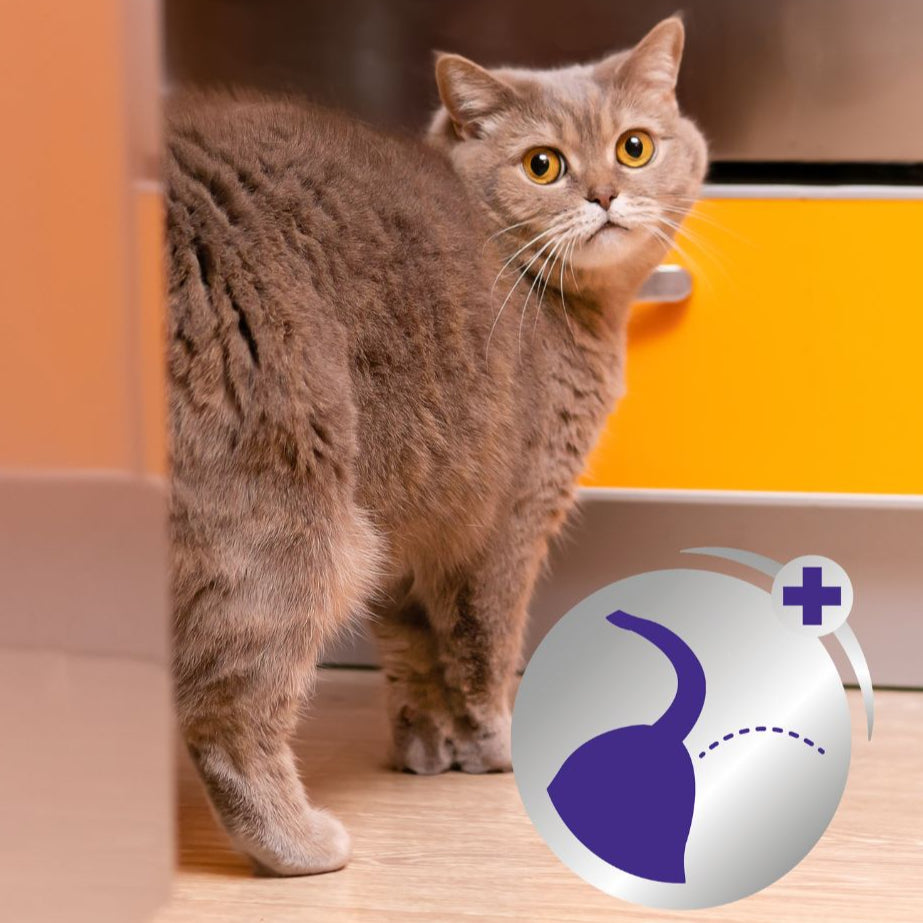
Spraying usually involves small amounts of urine on vertical surfaces and is associated with stress or marking. Urinating on horizontal surfaces like beds or rugs, especially in larger amounts, often points to medical issues or litter box problems.
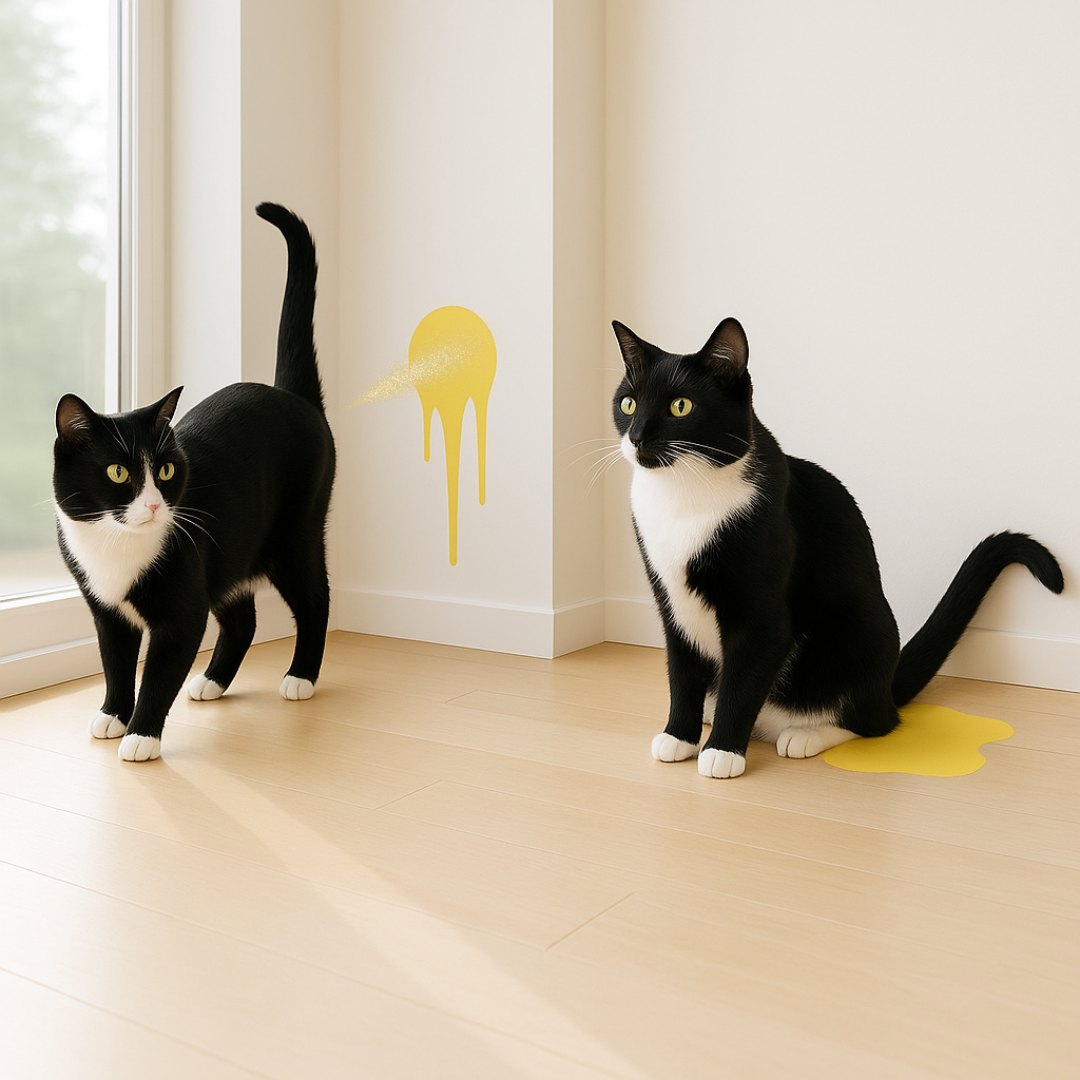
It’s always a good idea to rule out any underlying medical issues. In some cases, urine spraying can be linked to health problems, so if the behaviour continues or you’re concerned, be sure to check in with your vet.
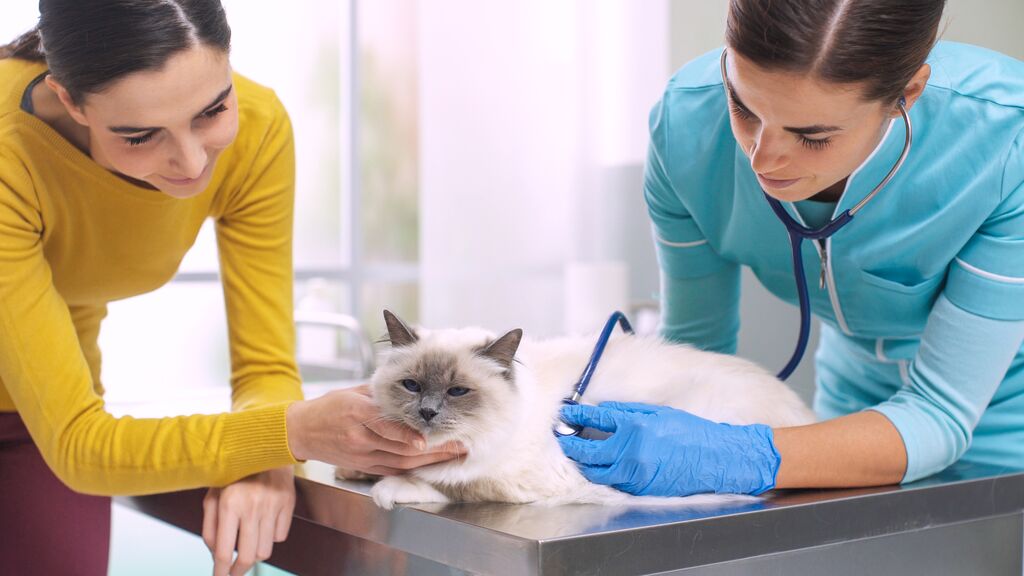
How to stop spraying and urinating in the home: Steps to Follow
Clean with warm water and mild soap or an alcohol-based product. Let it dry completely. Avoid bleach or ammonia-based cleaners — these can smell like urine to cats and may encourage more spraying.
Read More: 6 Steps to clean cat urine
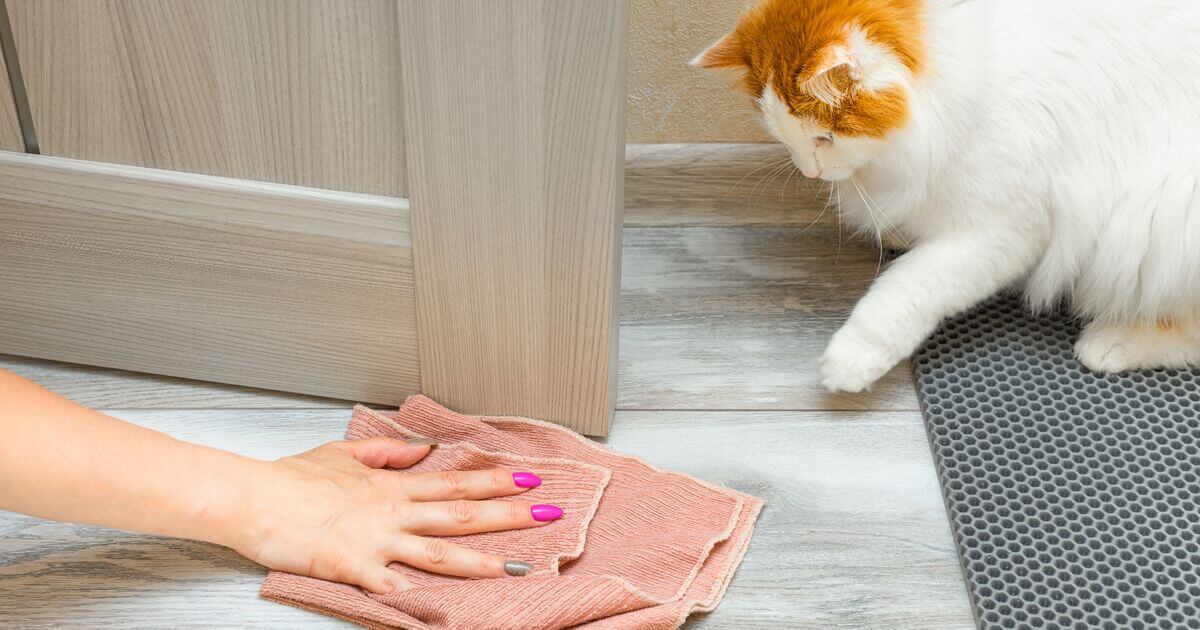
The FELIWAY research team has been working for over 25 years to gain a better understanding of how cats communicate, which resulted in the development of FELIWAY Optimum – the most advanced cat calming option available.
Studies have shown that FELIWAY Optimum helps reduce urine spraying by 77% and improvement can be seen within the first 7 days.
Plug it in where your cat spends most of their time and use it continuously (not near the litter tray) for best results.
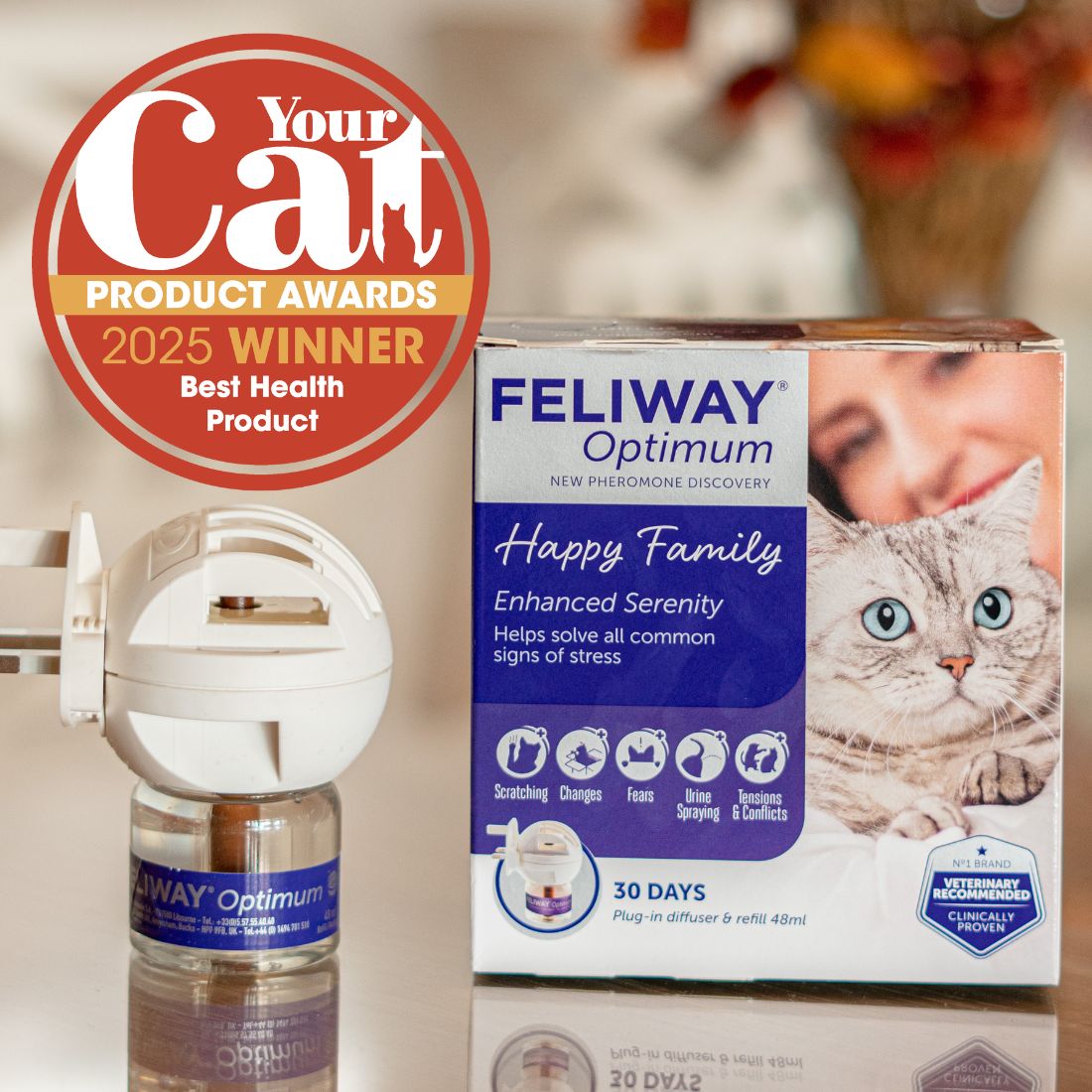
- You always need a spare, One litter tray per cat, plus one extra. Why? Cats do not like to share so there always needs to be a spare litter tray, plus it gives them an option to go to a clean one.
- Place in easily accessible and QUIET areas of the home, away from food and water bowls
- Keep clean by scooping at least once daily, and thoroughly clean the litter tray once a week
- Most cats will be happy using a large, open litter tray. Some cats will be happy using a hooded version; however, these can potentially lead to problems as they are more restrictive and can become quite smelly. Discover what type your cat prefers.
For even more details on litter trays, visit our blog: Litter Tray Tips
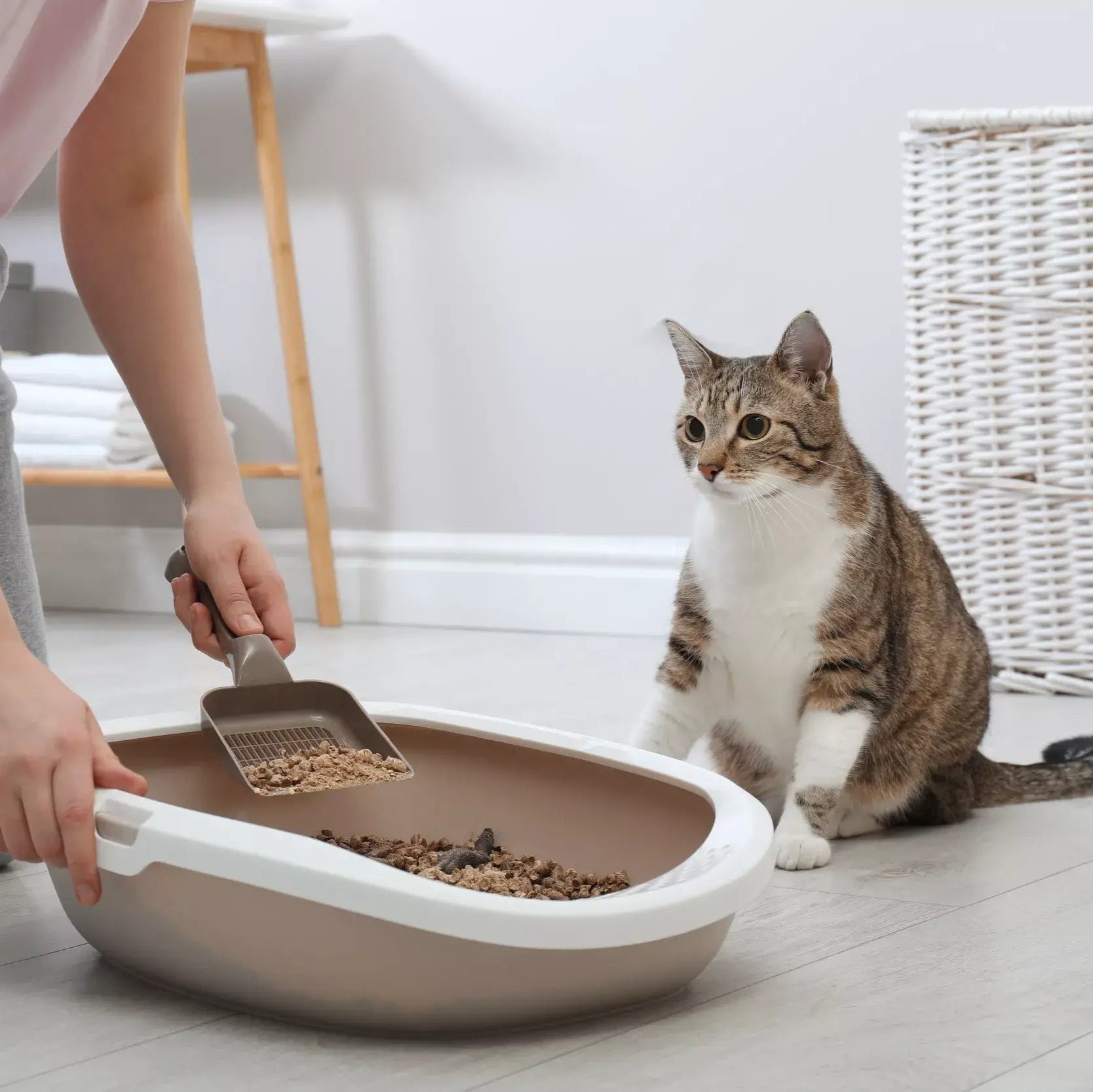
WATCH: How to Stop Cats Spraying
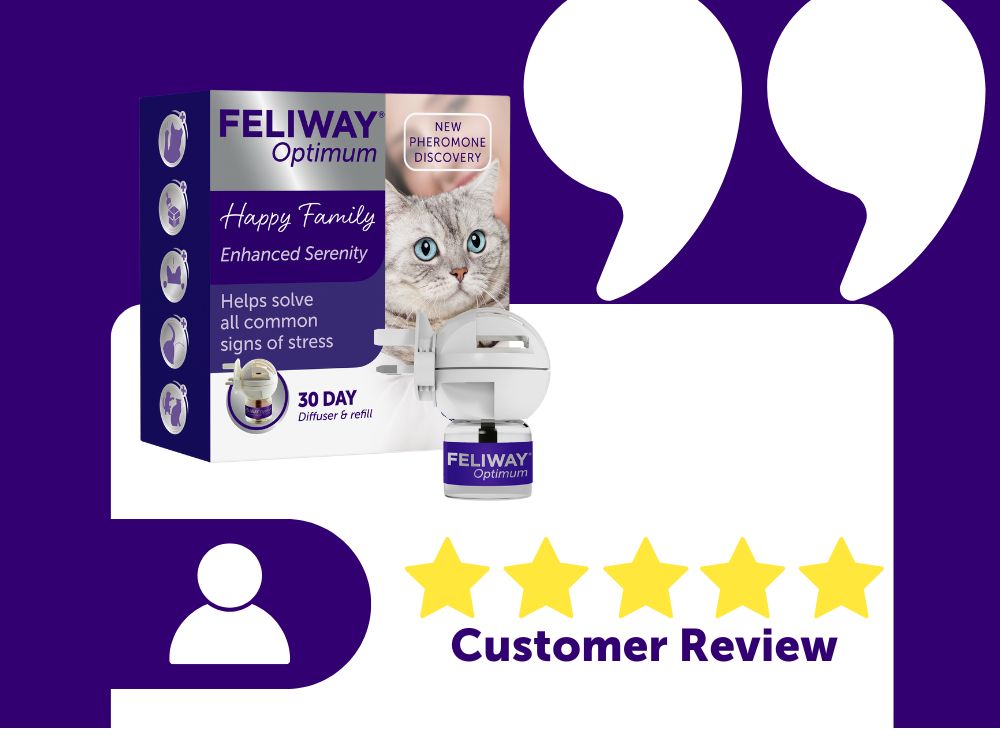
Danielle - Excellent! Seems to be doing the job. We bought these on recommendation from the vet due to our cats weeing in strange places in the house. Since using these, the wees seem to have stopped and, as an extra plus, the cats are sleeping next to each other on a night again, instead of fighting each other for the bed, as well which hasn't happened for quite a while before this!

Bert & Ernie - Bert can be very hyper at times and that stresses out Ernie, who sometimes sprayed in places. We tried Feliway classic again and it seemed to calm them both down and Ernie has stopped spraying, so we are going to keep using it for a bit of calm in the house.

Kay - I used this spray along with the Optimum Plug-in Refill and so far it seems to have worked as my female cat has stopped spraying. I will be buying again as want to keep on top of this issue.

Monkey - Monkey is such a cheeky girl and really does live up to her name!!!!, she loves climbing and playing fetch with her little foam ball, we have two older cats as well and since we have being using Feliway everyone seems to be getting along and no more territory spraying!!!!!
cat stress questions -
Frequently asked questions:
FREQUENTLY ASKED QUESTIONS - CAT PEEING / SPRAYING / URINE MARKING
Find quick, expert-backed answers to the most common questions about FELIWAY, cat behaviour, and how to create a stress-free environment for your feline friend.
WHY DO CATS PEE OUTSIDE THE LITTER BOX?
All cats, male or female, neutered or not, will mark out their territory with urine spraying. Normally this is rare and discrete. But when this natural behaviour
happens in your house, it can be very frustrating. When this happens, it is due to fear and anxiety. It can be a reaction to:
Recent changes at home:
New home, new furniture,
New cat or kitten,
New pet, new dog
New family member, baby...
Conflict with other cats:
Competition for access to the litter box.
It can also be caused by a medical issue. If your cat starts peeing outside the litter box, please consult your vet. Especially older cats, who are at risk of more medical issues.
Using FELIWAY Optimum Diffuser continuously may help stop and
prevent spraying, especially if your cat seems emotional and sensitive to any change at home.
CAT PEEING vs. CAT SPRAYING
There are many things that can cause a cat to choose to pee
all over your home, rather than in the litterbox.
In fact, there are two types of cat soiling issues:
1. Cat spraying on walls, doors and furniture (vertical spraying) - learn more from this blog
2. Cat peeing outside the litter box, on floors, beds,
clothes (horizontal peeing)
DO NEUTERED CATS SPRAY?
Yes, neutered cats can still spray. Neutering will reduce spraying behavior related to sharing reproductive information with other cats, but both neutered males and spayed females may also spray for other reasons. For example, this can include stress and anxiety. If a cat is spraying, it’s important to look for underlying issues. FELIWAY® Optimum can be an effective solution for providing social and environmental support and for enhancing your cat’s serenity, helping them to feel more comfortable and secure in the home.
HOW CAN I STOP MY CAT FROM SPRAYING?
While spraying is a natural behaviour for cats, there are
steps we can take to minimize this behaviour and help prevent your cat from feeling as though they need to mark their territory. First, identify and address any factors that may be causing your cat to feel insecure in certain areas. For example, this could be conflict with other pets, changes in the
household, or outdoor cats near your home. It may be helpful to keep a record of when and where your cat is spraying to see if there is a pattern that can help you identify the cause. Next, aim to provide a stable environment with regular playtime, attention, and enough resources, including litter boxes and spots to eat and drink. The general rule for resources it to have one more than the number of cats in your home.
FELIWAY® Optimum can also help calm your cat and reduce the urge to mark territory. If your cat’s spraying behaviour continues, consult a vet or a feline behaviourist for further support.
WHAT DOES CAT SPRAY LOOK AND SMELL LIKE?
Cat spray can be quite hard to spot as cats tend to only spray a very small amount. It is essentially a concentrated amount of urine (with a complex pheromone added in), so you’re far more likely to be aware of the smell than you are of its appearance.
Rather than identifying what the spray looks like, it can be more helpful to recognize your cat’s behaviour when they’re spraying. Cats will often sniff an area first, then back up to it with their tail erect and quivering before spraying a small amount of urine on the surface. Their back legs may also ‘tread’ as this happens.
HOW LONG DOES CAT SPRAY SMELL LAST?
If not properly cleaned, the smell of cat spray can last for weeks or even months. Warm, soapy water will generally be enough to remove the smell, but it’s important to make sure you’ve cleaned it all. Carpet and floorboards can be tricky if it’s able to soak in or get into any gaps.
Likewise, if your cat sprays on any curtains with a delicate fabric, it may be a good idea to seek professional cleaning advice!
HOW TO GET RID OF CAT PEE SMELL
It can be difficult to get rid of cat urine smell. If your cat has recently targeted your sofa, bed, or furniture with urine spraying, the situation can quickly become unpleasant. To stop the smell from persisting, and avoid your cat spraying in the same places, start by removing anything that attracts them. This can be done by carefully cleaning up urine traces, to remove odor and visual marks. To prevent the situation from continuing read our article on how to get rid of a cat spraying smell with 6 different tips.
DOES FELIWAY® STOP CATS FROM SPRAYING?
FELIWAY® Optimum has been shown to help 9/10 cats reduce their cat spraying behaviour by releasing “serenity messages”. These promote a sense of security and well-being in the environment, making cats less likely to spray as a territorial or stress-related behaviour.
WHY DO CATS PEE OUTSIDE THE LITTER BOX?
CAT PEEING vs. CAT SPRAYING
DO NEUTERED CATS SPRAY?













